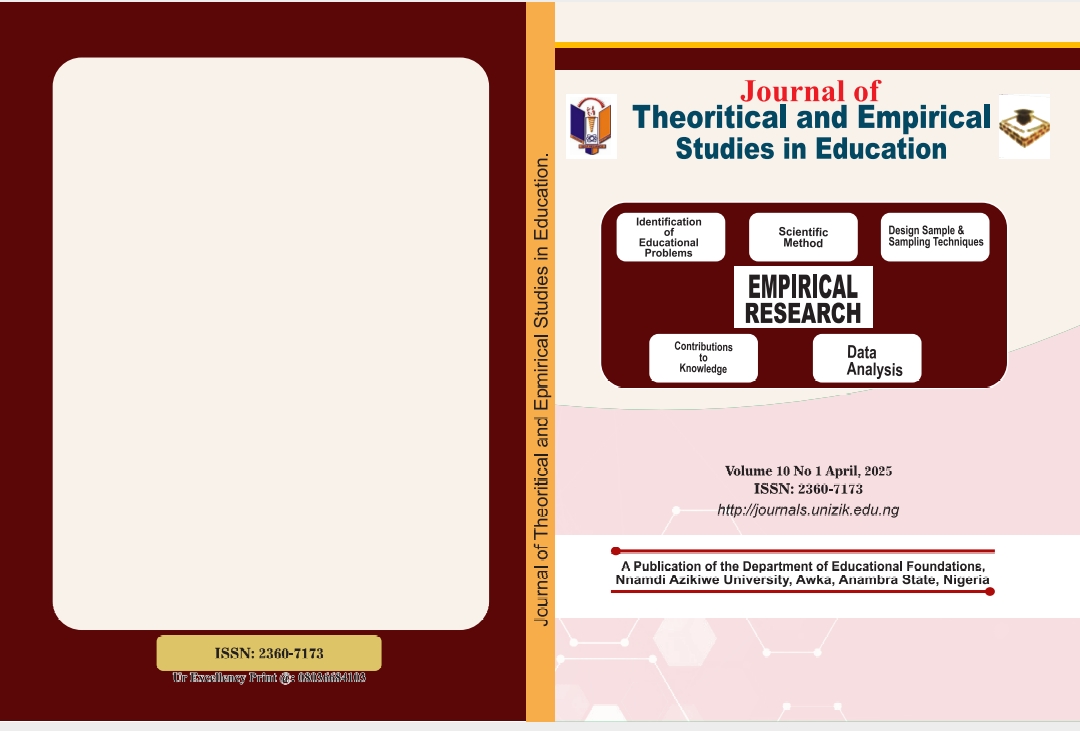Enhancing Students’ Academic Engagement Through Team Work in Secondary School in Nigeria.
Keywords:
Student’s Engagement, Team-work, student, Academic performance, Secondary SchoolAbstract
Engagement among students is a crucial element in achieving academic success, especially in senior secondary where academic interest often declines as a result of several social and academic factors. This research investigates the effects of team work and collaborative assignments on students in Nigerian secondary education. The research study utilizes a descriptive survey methodology, gathering data from 200 educators across both public and private institutions through the use of questionnaires. The study indicates that collaboration encourages participation by fostering active involvement, responsibility, and interaction among team members. Group activities including discussions, problem-solving, creativity and competitive
tasks were found to be the most effective in boosting student motivation and improving learning results. The data obtained from the questionnaires were analyzed using regression analysis with the Statistical Package for Social Sciences (SPSS)
software. Collaborative learning among students led to enhanced academic performance, as they showcased improved retention, critical thinking abilities, and assessment outcomes when working together. Effective implementation is hindered
by several challenges, including limited resources, unequal participation, and teachers struggling to manage group dynamics. These results highlight the necessity for a well-organized project management approach, comprehensive teacher training, and ample resources to fully capitalize on the rewards of collaborative learning. The study concludes that teamwork is a highly effective educational resource that boosts student participation and academic achievement. The recommendation suggests
providing institutional backing, well-defined evaluation frameworks, and digital resources to enable collaboration. By promoting collaboration, Nigerian secondary schools can establish a dynamic and inclusive learning environment that equips students for future academic and professional.




